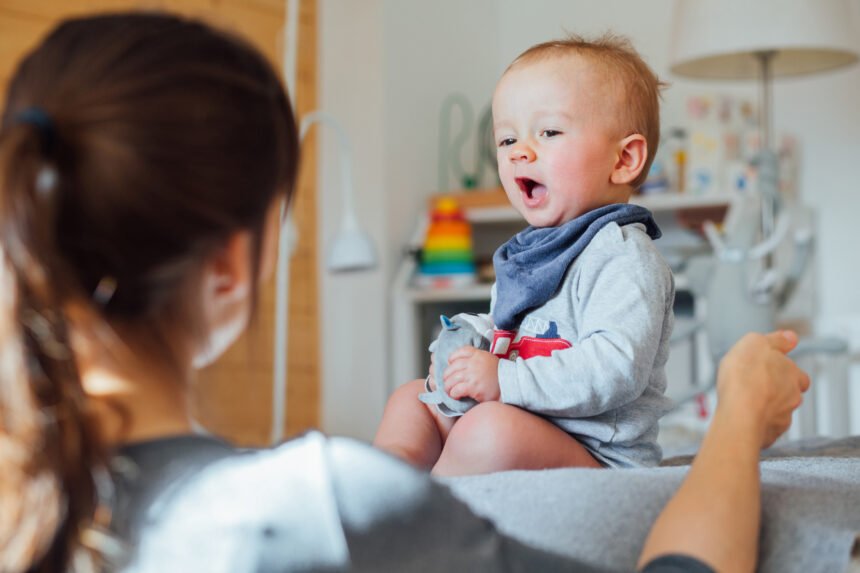[ad_1]
Mom’s Woes: When Baby Says ‘Dada’ Instead of ‘Mama’
There can be a slight tinge of dismay when a baby blurts out ‘dada’ instead of ‘mama’. But, child development experts encourage moms not to view it as a snub. They explain that this apparent discouraging phenomenon isn’t an indication of a baby’s preference for their dad.
Stephanie Cohen, a renowned speech-language pathologist and author of “The I Can Say Mama Book,” suggests that this occurrence often reflects what babies hear most often.
The frustrations faced by mothers are visible in a slew of viral videos, showing babies addressing their mothers as ‘dada,’ despite intense maternal efforts.
Understanding The ‘Dada’ Phenomenon
In a popular TikTok video compilation, witnessing over 1.6 million views, we see several mothers insistently urging their toddlers to say ‘mama.’ The response, however, remains an unyielding ‘dada.’
A similar stubbornness is evident in another TikTok video. The video, boasting a whopping 4 million views, shows a baby recalcitrantly uttering ‘dada’ when mom pleads him to say ‘mama.’
For mothers, it can be a daunting and seemingly painful experience, but babies saying ‘dada’ before ‘mama’ is not reflective of any parental partiality.
Diane Paul, the director of Clinical Issues in Speech-Language Pathology at The American Speech-Language-Hearing Association, suggests that the baby might simply be raising a query rather than defying mom’s instruction.
“Why ask for mama when mama is already there? This indicates the child’s nascent grasp of pragmatic language use,” she theorizes.
Also, Cohen reasons that babies might frequently say ‘dada’ because mothers usually speak about their male partners more often than themselves.
In some cases, the baby might just be flexing their linguistic muscles, experimenting with different sounds. It’s common for them to go for ‘D’ sounds.
When babies start recognizing the meaning behind ‘mama’ or ‘dada,’ they often assign this label to whoever reacts with the most enthusiasm.
In essence, these could be random gibberish moments turned into significant linguistic milestones due to adult reaction.
Another argument revolves around the ease of pronunciation for ‘dada.’ Roman Jakobson, a Russian linguist, found that babies say ‘mama’ more readily as ‘m’ sounds usually occur when they suck on a bottle or breast. However, this argument is disputed by Breyne Moskowitz, PhD, who contended that nasal sounds like ‘m’ are tougher for babies to pronounce.
Irrespective of these various theories, with enough positive reinforcement, babies eventually start associating ‘mama’ or ‘dada’ with their respective parents.
Cohen explains, “Through repeated experiences, they start recognizing the meaning tied to ‘mama’ and ‘dada.’ They notice a reaction when these syllables are uttered, so they often start using these words intentionally to grab their parent’s attention.”
Ensuring ‘Mama’ Comes Out First
So, how can mothers ensure that their child says ‘mama’ consistently? Make it linked to fun and humor.
In an Instagram video, Cohen suggests associating ‘mama’ with pleasurable experiences: “While drinking. Make a sound of satisfaction like ‘mmmm.’ Throw in some playful kissing sounds and silly noises. This auditory playfulness fascinates the baby. Doing this exercise in front of a mirror can help the baby observe and try to emulate your actions.”
Additionally, TikTok creator Joyce Pring has conjured up a clever trick to seal the deal. She labels her husband’s picture as ‘father,’ prompting her daughter to say ‘mama’ instead.
[ad_2]









